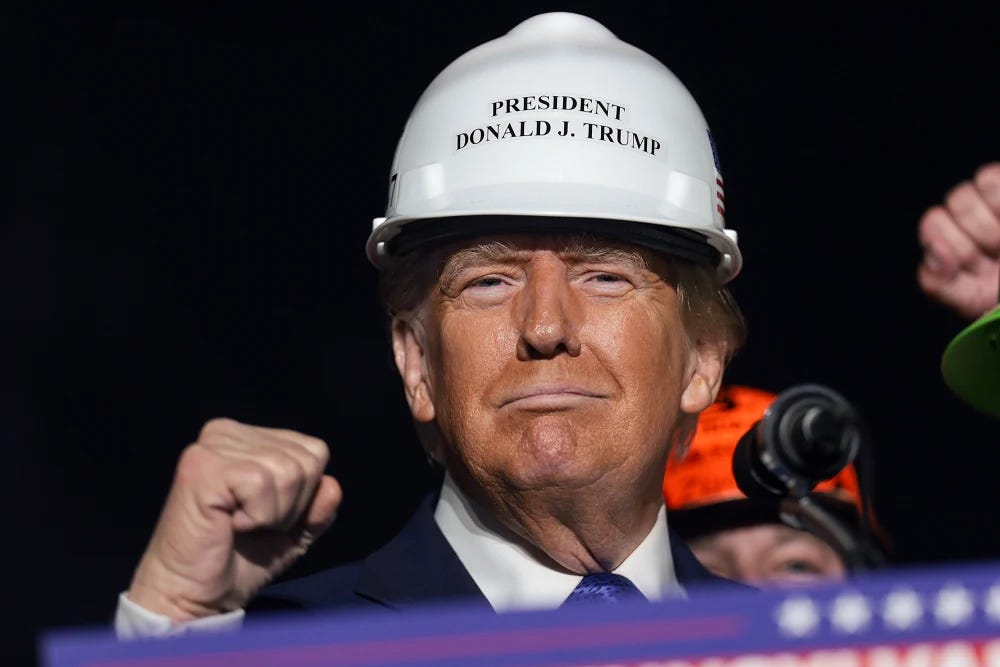Senate Republicans Express Concerns Over Trump's Labor Secretary Nominee
WASHINGTON — President Donald Trump’s nominee for labor secretary, former Representative Lori Chavez-DeRemer, is facing skepticism from Senate Republicans due to her past pro-union positions, which co
Senator Rand Paul, R-Ky., a key member of the Senate Health, Education, Labor, and Pensions (HELP) Committee, stated his firm opposition to her nomination.
“I’m not going to support her,” Paul told NBC News. “Her backing of the PRO Act, which undermines national right-to-work laws and preempts state authority, is a significant concern.” He further predicted that Chavez-DeRemer could lose the support of at least 15 Republican senators.
The HELP Committee has yet to schedule a hearing for Chavez-DeRemer, who previously served one term representing a swing district in Oregon before losing re-election last fall. Paul indicated that he had not yet communicated his opposition to the White House directly.
Chavez-DeRemer’s support for the PRO Act, which strengthens employee protections for collective bargaining and expands definitions of unfair labor practices, has garnered positive attention from labor unions, including the AFL-CIO. However, this stance has also fueled concerns within the business lobby, which traditionally aligns with Republican leadership.
A veteran business lobbyist expressed unease over the nomination. “My biggest concern with a new Trump administration is the shift on labor unions, which have historically been aligned with the Democratic Party,” the lobbyist said. “Her previous support for legislation that limits employer rights suggests she may push for restrictive regulations.”
The White House has yet to respond to requests for comment regarding the nomination.
GOP Divisions and Uncertainty Among Democrats
Senator Bernie Sanders, I-Vt., an advocate for labor rights and the ranking Democrat on the HELP Committee, declined to comment on Chavez-DeRemer’s nomination but indicated he was keeping an open mind. “There’s a process with the hearings. We’ll ask our questions and see what she has to say,” he remarked.
Senator Ron Johnson, R-Wis., voiced similar concerns, particularly regarding Chavez-DeRemer’s endorsement of the PRO Act. “It’s concerning,” Johnson stated, adding that he intends to seek clarity on her stance before making a decision.
Other Republican senators also appeared hesitant. Senator John Hoeven, R-N.D., admitted he was unfamiliar with Chavez-DeRemer and had yet to form an opinion. “She’s not a traditional pick for a Republican president,” he noted.
Senator John Cornyn, R-Texas, acknowledged Trump’s authority to select his Cabinet but described Chavez-DeRemer as an unconventional choice. “One of the biggest challenges with trade agreements has been labor unions’ opposition. That’s something I would want to explore,” Cornyn said.
Business Lobby’s Waning Influence in the GOP
Chavez-DeRemer’s nomination underscores the shifting power dynamics within the Republican Party. Traditionally, the business community held considerable sway over Republican administrations, but Trump’s alignment with right-wing populism has reshaped party priorities.
A former Chamber of Commerce lobbyist acknowledged this shift. “There are conversations we are trying to have, but there’s no clear indication that our concerns are being heard.”
Trump’s attempt to court organized labor was evident during his 2024 campaign. One notable moment was his invitation to Sean O’Brien, president of the International Brotherhood of Teamsters, to speak at the Republican National Convention in July. O’Brien, while not endorsing Trump, praised him as a “tough S.O.B.” and highlighted his willingness to engage with union leaders.
GOP Senators Weighing Their Options
Senator Steve Daines, R-Mont., viewed Chavez-DeRemer’s nomination as consistent with Trump’s promise to disrupt the political status quo. “The president is shaking things up in Washington,” Daines said. “His mandate from the election was to break away from business as usual.”
Meanwhile, Senator Josh Hawley, R-Mo., who has expressed more openness to labor issues than many of his Republican colleagues, voiced support for Chavez-DeRemer. “If we want to be a party for working people, we need to do something for them,” Hawley said. “That doesn’t mean we have to endorse everything in the PRO Act, but we need to stop reflexively opposing labor-friendly policies.”
A Contentious Path Forward
With the GOP holding a 53-47 majority in the Senate, Chavez-DeRemer’s confirmation could hinge on Democratic support, particularly if multiple Republicans oppose her nomination. The upcoming hearings will be critical in determining whether she can secure enough bipartisan backing to move forward.
As Senate Republicans grapple with Trump’s unexpected choice, the nomination process is shaping up to be a test of the party’s evolving stance on labor issues and its relationship with both the business community and working-class voters.


